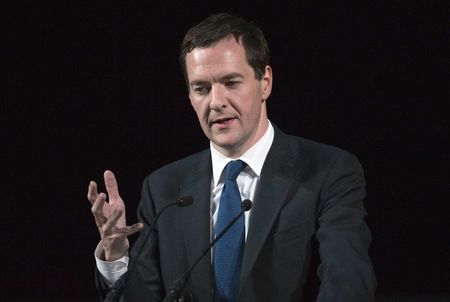LONDON (Reuters) - Britain has scrapped a planned change to its three-year old bank levy, which has failed to raise as much money as expected, after resistance from the industry, the government said on Thursday.
In his annual budget statement in March, Britain's Chancellor George Osborne said the government would consult on possible changes to the levy which would see banks put into different bands with each band charged a set amount.
However, Economic Secretary Andrea Leadsom said on Thursday that feedback from banks, building societies and advisory bodies suggested the change would create uncertainty over banks' charges, strengthen the incentive for them to relocate activities overseas and create arbitrary differences between the tax rates for different banks.
"Reflecting on these concerns - which were raised by banks of different domicile, structure and balance sheet size and trajectory - the government has decided against the introduction of a banding approach for the bank levy and has no plans to consider this idea further," Leadsom said.
The government is still considering other potential changes to the levy, which was introduced in 2011 with the aim of ensuring banks made a fair contribution to the potential risks they pose to the financial system.
The levy, which has never raised the targeted 2.5 billion pounds a year, applies to the global balance sheet assets of British banks as well as assets belonging to the UK operations of foreign banks.

In an effort to boost proceeds from its bank levy, the government has raised the rate seven times since its launch because banks' downsizing meant there were fewer assets to tax.
Britain is expected to raise 2.3 billion pounds from the levy this year, according to government data, compared with 1.6 billion in the previous two years.
(Reporting by Matt Scuffham; Editing by Mark Potter)
